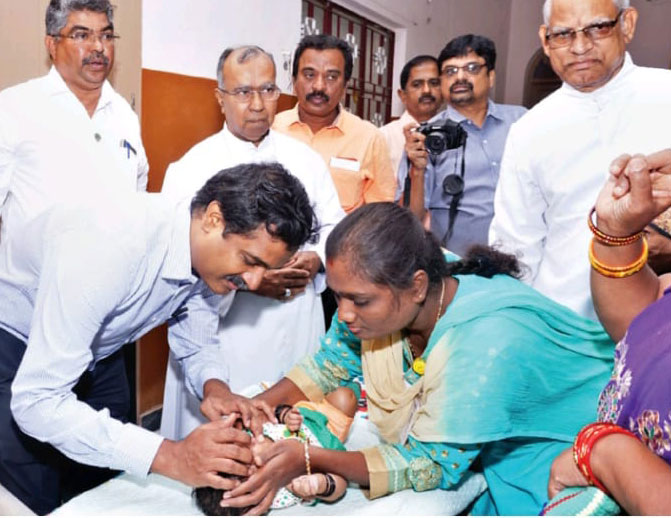Those with cleft lip and palate, including parents of newborns with such deformity, look up to the first Saturday in December each year for corrective surgery at a one-day special camp organised by RC Coimbatore Millennium, RID 3201. The venue, St Michael’s Cathedral in the heart of the city, will be buzzing with patients, doctors and medical equipment converting it into a makeshift hospital for a day.

Project Chairman W Paul William, who initiated the cleft lip and palate surgery camp during his tenure as president in 2011, shares details about the project: “I got interested in cleft lip and palate deformity after attending one of the Rotary conventions and Dr S Prabhakaran of Vinayaka Mission Hospital, Salem, mooted the idea of holding a special camp for children born with this facial disorder.” In the maiden camp, 67 children were screened and operated upon in a phased manner.
The US-based NGO Smile Train provides a nominal amount for each child to undergo treatment. “The amount is given to the hospital. For us, the job begins 15 days ahead of the camp from Nov 14,” says William. Each year, he conducts an intensive awareness campaign with a 10-member team including the club president, secretary, Rotaractors and Project Co-chair Henry Amalraj. Posters, banners and billboards go up at vantage points, while Rotarians approach doctors at public health centres to send their patients for the special camp at the cathedral. Leaflets are distributed across 30–35 villages around the city. The club spends about ₹1 lakh for food and transport for the patients and their caregivers, and a stipend of ₹500 a day is given to each volunteer.
There is much social stigma attached to people having cleft lip and palate. “It is pathetic to see children and elders suffer social ignominy due to this deformity. Families tend to hide such members due to social backlash.” He attributes marriages between blood relations as the main cause for the offspring being born with such deformity. “Newborns can’t have mother’s milk as it oozes out of its nose through the hole. From children to over 60-year-old elderly, cleft lip and palate is common in the rural areas, but it can be easily rectified through a surgery.”
Last December the camp screened 32 children, of which 26 were treated at the Ganga Hospital in the city. Since inception, the camp has treated over 370 patients. The patients are given speech therapy after the surgery.
William refers to Balasubramanian, working in Roots Industries, who was overjoyed when his child was cured of the disorder in one such camp. “Ever since, he is part of our campaigns and has brought many patients to the camp.”





